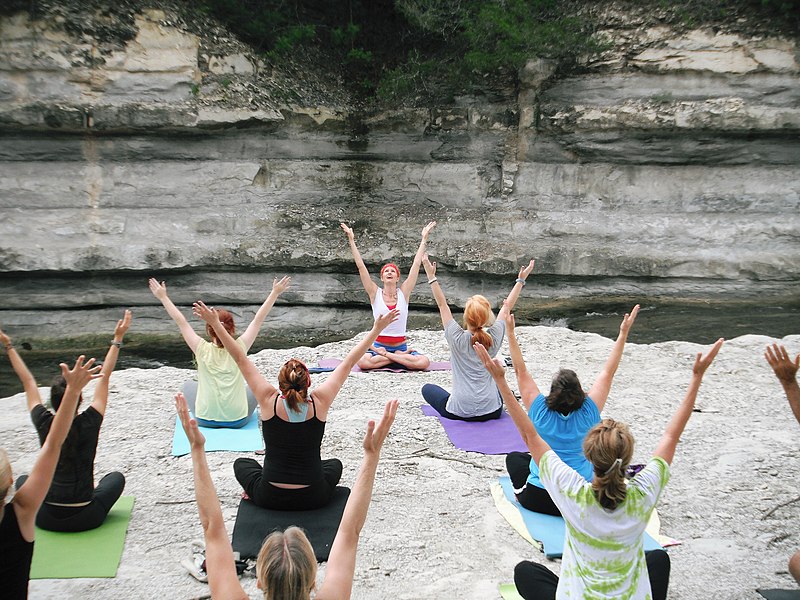Today I did my first led Ashtanga practice since the surgery. Earlier in the week I went to my shala and did a self-led practice. My regular teacher, Val, helped me to adapt the vinyasas and asanas for my limited range of motion.
I'm still having problems with the incision area where they took out lymph nodes, and, according to my surgeon, will continue to have issues for a while. I can't follow extend my arm up over my head yet, and the swelling in the area makes it uncomfortable for me lie on my right side.
My stamina is also still not back. I'm tiring pretty easily, and finding that I've had to pull back on all my physical activities.
The Friday morning led practice at my Shala is the advanced primary series. Even though I had to adapt and modify the asanas and vinyasa pretty extensively, and even though I had to sit and breath while my fellows yogis did all the vinyasas during the seated portion of the practice, it still felt good to just breath and stretch in unison with my fellow practitioners.
I had the same experience in my Tai Chi class. Last night I went back to my first Tai Chi class since the surgery. During the early Qi Gong portion of the class it just felt good to stand and breath with my fellow students.
When we went into our Yang long form, however, I found I had to stop during the second part to take a break. My incision started to bother me from all the arm movements, and I just got plain old tired. I was able to rejoin towards the end of the second part (the entire form takes between 15 to 20 minutes to complete) and finished. I decided to forgo any practicing of my sword or saber forms for a few weeks, since my sword/saber arm is, of course, my right arm (where the incision is).
But, as in yoga, it was still just good to move and breath.

Perception and attitude predetermine outcome. You are calling the shots in this round. Congratulations.
ReplyDeleteUnfortunately, the older we are the longer it takes to bounce back from surgery.
ReplyDeleteI'm a nurse and I used to work in surgery. I've always described nearly any surgical procedure as "controlled trauma."
If you've ever been in even a very minor auto accident or fallen but not sustained any major injuries, it's possible you've been sore or achey for days or maybe even weeks afterwards just from being jostled about. It's the same with surgery.
While surgical staff does their best to make sure you're not injured during a procedure, not only is your body moved around, but often times put in rather awkward positions for rather extended periods of time to do whatever procedure.
Add to that powerful drugs that keep you unaware of what's happening and free from pain during the procedure and it's no wonder you feel like you've been ridden hard and put away wet for weeks after surgery.